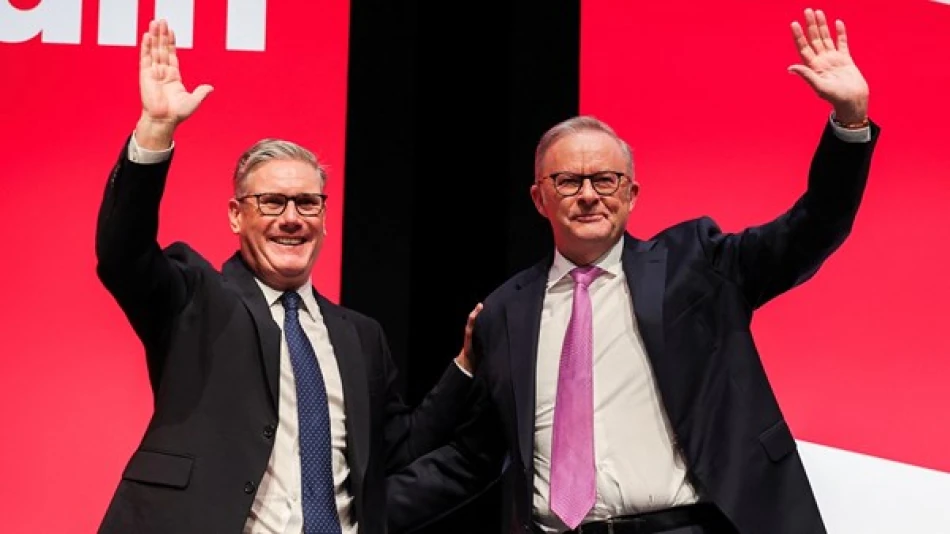
Starmer Vows to Confront Far-Right Extremism in the UK
British Prime Minister Keir Starmer is gearing up for what he calls "the most important battle of our lives" against the far-right Reform Party, as polls show his Labour Party trailing behind Nigel Farage's movement. Speaking at Labour's annual conference, Starmer framed the next election as a choice between national renewal and toxic division.
The numbers tell a stark story. Recent polling shows Reform UK ahead of Labour, marking a significant shift in British politics since Labour won the general election just months ago. Starmer isn't mincing words about the threat he sees from Farage's party.
"They want to tear this country apart," Starmer said in a BBC interview, specifically targeting Reform's immigration policies. The party wants to force all non-European legal migrants to reapply under stricter conditions - something Starmer called both "racist" and "immoral."
This puts Labour in an unusual position. The party that campaigned on change and hope now finds itself playing defense against a populist surge. Starmer is betting that voters will reject what he calls Reform's politics of fear and resentment when they head to the polls in 2029.
Australian Prime Minister Anthony Albanese, who leads Australia's Labor Party, showed up to back his British counterpart. His message was blunt: governing means making hard choices and dealing with messy realities. "Being a party in power means dealing with uncertainty and complexities," Albanese told conference delegates in Liverpool.
The political stakes are huge. Reform UK's rise reflects broader European trends where far-right parties have gained ground by focusing on immigration and national identity. But Britain's electoral system makes it harder for new parties to break through, even with strong polling numbers.
For investors and markets, political instability in Britain adds another layer of uncertainty. The country is still dealing with economic challenges from Brexit and recent market turbulence. A strong far-right showing could signal more policy volatility ahead, especially on trade and immigration issues that affect business planning.
Starmer's strategy is clear - paint the 2029 election as a fundamental choice about Britain's direction. Whether that message resonates will depend on how well Labour governs over the next few years and whether Reform can maintain its current momentum.
Most Viewed News

 Layla Al Mansoori
Layla Al Mansoori






